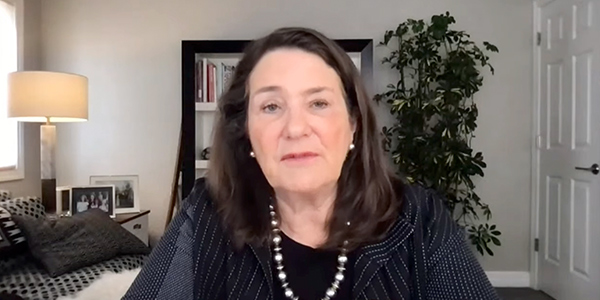February’s winter storm outages in Texas signal a need for a broader re-examination of the electric grid and its preparation for extreme weather events of all kinds, members of the House Energy and Commerce Subcommittee on Oversight and Investigations heard on Wednesday.
“The electric and natural gas systems need to plan for and be better prepared for extreme weather conditions, which are frankly becoming more routine,” NERC CEO Jim Robb said. “Regulatory and market structures need to support this planning and the necessary investment to ensure reliability.”
Despite the presence at Wednesday’s hearing of WECC Findings Show Complexity of Heat Wave Event.)
“I believe the lessons to be drawn from these examples may be numerous, which is why we should be inclusive in looking at them,” Ranking Member Morgan Griffith (R-Va.) said. “Texas’ problems occurred despite the state’s leadership in achieving a diversified, all-of-the-above energy mix … and indicates a need for better weatherization.”
Questions Continue on Renewables
However, attendees were far from unified in their takeaways from February’s crisis.
Popular among Republican attendees was Michael Shellenberger, author, self-described “environmental and social justice advocate” and the founder and president of energy-focused think tank Environmental Progress. In his testimony, Shellenberger said the 2021 blackouts in Texas and last year’s outages in California demonstrated the danger of over-reliance on resources that, by their nature, provide undependable and unpredictable output, and showed why thermal generation resources are still a vital part of the energy mix.
“Adding more weather-dependent sources to electricity grids, all else being equal, might not, in itself, make electricity less reliable. But all else is not equal,” Shellenberger said. “The significant integration of variable energies has led to the loss of traditional power plants and the construction of new transmission lines to weather-dependent energy projects that are unreliable in extreme weather events.”
Members of the minority repeatedly referred to Shellenberger’s testimony to support their calls to slow the transition to renewable energy; several Republican attendees even noted that they planned to buy his book.
But Democrats pushed back on this argument; without addressing Shellenberger directly, several members noted — along with Turner — that all generation types experienced losses during the winter storms. (See ERCOT was ‘Seconds and Minutes’ from Total Collapse.) Rep. Kim Schrier (D-Wash.) referred to suggestions that renewable resources were particularly to blame for the crisis as “misinformation.”
Texas Republican Dan Crenshaw — who was invited to attend despite not being a member of the subcommittee — indirectly replied to this comment later in the hearing, sarcastically saying that it was unfair to blame wind for the outages “because you can’t blame something that’s inherently unreliable.” He also criticized Turner for asserting that Houston’s city offices are entirely powered by renewable energy, reminding listeners that this is simply not possible when the wind is not blowing or the weather is cloudy.
Robb Urges New Approach to Gas
Robb stayed away from political debates during Wednesday’s hearing, though he was slightly less guarded than he has been on previous meetings on this subject. In response to a question from Chair Diana DeGette (D-Colo.) he suggested that Texas had “absolutely not” followed Senators Grill Robb, Asthana over Texas Outages.)
Robb’s testimony focused more on needed investments in transmission and long-term energy storage, along with new “regulatory and market structures” to support a more responsive grid of the future. He also highlighted the shortcomings of the natural gas system, which has become increasingly important for providing just-in-time electricity generation but is still governed by regulations that have not been redesigned to recognize this use case.
“The natural gas system is designed primarily to meet [local distribution company] load … and it does that incredibly well, [but] power generation … has not been its first priority,” Robb said. “The gas system’s designed primarily to focus on high utilization of its assets, whereas the electric industry needs tremendous flexibility to meet incredibly rapid power plant ramp rates to accommodate generation.”







